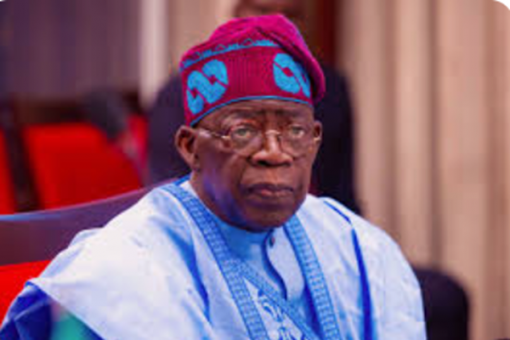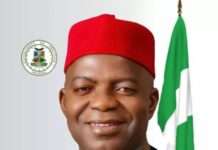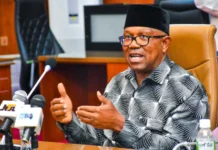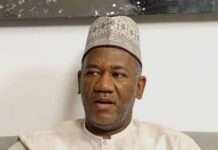ABUJA – President Bola Ahmed Tinubu has reaffirmed his administration’s commitment to transparency and fiscal prudence, declaring that savings from the fuel subsidy removal are being reinvested into key sectors to drive inclusive development and rebuild public trust.
Speaking through the Minister of State for Finance, Dr. Doris Nkiruka Uzoka-Anite, on Monday, at the National Conference on Public Accounts and Fiscal Governance, jointly organised by the Public Accounts Committees (PACs) of the Senate and House of Representatives, President Tinubu said the decision to remove the fuel subsidy, though tough, was necessary to realign the nation’s fiscal priorities.
“In 2022, Nigeria spent over ₦4 trillion on fuel subsidies, more than our capital expenditure for that year. Such a fiscal pathway was not only unsustainable but unfair, favouring the wealthy, encouraging cross-border smuggling, and fostering systemic inefficiencies,” Tinubu stated.
EXPOSED!! POPULAR ABUJA DOCTOR REVEALED HOW MEN CAN NATURALLY AND PERMANENTLY CURE POOR ERECTION,QUICK EJACULATION, SMALL AND SHAMEFUL MANHOOD WITHOUT SIDE EFFECTS. EVEN IF YOU ARE HYPERTENSIVE OR DIABETIC ..STOP THE USE OF HARD DRUG FOR SEX!! IT KILLS!
He noted that the withdrawal of the subsidy has freed up resources now being redirected into targeted economic initiatives, expanded social protection schemes, mass transit improvements, and essential infrastructure development.
“Crucially, we have fortified our fiscal buffers, enhancing Nigeria’s resilience to external economic shocks,” he added.
Describing fiscal governance as the “foundation of national growth,” Tinubu underscored the importance of transparency, accountability, and prudent resource management, adding that without these values, a nation’s wealth counts for little.
While acknowledging past fiscal inefficiencies and dependence on oil revenue, the president expressed optimism about Nigeria’s path forward, emphasising recent legislative reforms in the tax system designed to simplify processes, digitise revenue collection, broaden the tax base, and improve the ease of doing business.
“These tax reforms are not just administrative tweaks, they are core to our national transformation. We are building a diversified, self-reliant economy no longer tethered solely to oil,” he said.
Tinubu highlighted strategic sectors such as agriculture, manufacturing, technology, renewable energy, mining, and the creative industry, which he said are now benefitting from renewed investments and reform-driven attention.
He also cited the newly established National Credit Guarantee Company as a tool to support small and medium enterprises (SMEs), boost local production, and encourage non-oil exports.
On monetary policy, Tinubu acknowledged the efforts by the Central Bank of Nigeria (CBN) to stabilise the naira and curb inflation, noting improved synergy between monetary and fiscal authorities.
He reiterated that government transparency is non-negotiable, pointing to the digitisation of public finance management via platforms like IPPIS, GIFMIS, and the Open Treasury Portal as tools to enhance accountability.
“These systems make it possible to track public expenditures, hold officials accountable, and give citizens access to real-time financial data. We must move away from opacity towards openness,” he stressed.
The president called on the National Assembly, particularly the PACs, to execute their oversight duties with integrity and independence, reminding them that oversight is a constitutional responsibility, not a political weapon.
“Every naira must reflect value for money. Budgets must serve the interests of the people,” he declared.
He also encouraged citizen participation in governance, urging the media, civil society, and the judiciary to play active roles in demanding fiscal responsibility.
Akpabio Warns Against Rising Legislative Non-Compliance
Senate President Godswill Akpabio, represented by Senator Abdul Ningi, warned of the growing disregard for legislative summons by public officials and agencies, urging PACs to assert their constitutional mandates under Sections 80, 81, and 88 of the 1999 constitution.
“The PACs are empowered to summon anyone to explain the use of public funds. Refusal to appear before them is a direct insult to democracy and undermines the rule of law,” Akpabio said.
He criticised the growing nonchalance by MDAs toward oversight and urged the PACs to reassert their relevance thorough investigations and value-driven reviews of public expenditure.
Akpabio called for improved technical support and digital tools to help lawmakers tackle oversight challenges, especially concerning complex institutions like the central bank, NNPC Limited, and FIRS.
“This conference must go beyond rhetoric, it should empower legislators with actionable strategies to strengthen fiscal governance,” he said.
Over N300bn Unrecovered Public Funds, Abbas Raises The Alarm
Speaker of the House of Representatives, Rt. Hon. Abbas Tajudeen, represented by House Leader Julius Ihonbvere, decried Nigeria’s poor audit enforcement, disclosing that audit queries amounting to over ₦300 billion remain unaddressed.
“This culture of disregarding audit recommendations must end. There must be consequences for financial infractions,” he said.
He noted that the House has shifted from passive review to active enforcement, introducing follow-up mechanisms, digitisation of audits, and real-time tracking tools to ensure compliance by MDAs.
“Fiscal oversight is no longer a formality, it’s a strategic tool for national development,” Abbas said, highlighting the House’s efforts to simplify audit reports for public understanding and participation.
The speaker also advocated a unified national audit system to ensure accountability at all levels of government and stressed the need for continuous monitoring of budget implementation beyond appropriation.
“We are institutionalising a culture of performance reviews, sectoral audits, and impact-based fund assessments,” he added.
Wadada Urges End To Fiscal Recklessness
Senator Ahmed Wadada, Chairman of the Senate Public Accounts Committee, called for a national recommitment to fiscal integrity, stressing that the mismanagement of public funds has denied the country critical development.
“Fiscal governance is the ethical compass of public service, it determines whether revenues lead to prosperity or squandered opportunities,” he said.
Citing a recent Auditor-General’s report that exposed accountability gaps in several agencies, Wadada said the Senate PAC has ramped up oversight, launched public hearings, and engaged stakeholders to strengthen financial transparency.
He also pledged that the 10th Senate, under Akpabio’s leadership, would review outdated fiscal laws and deepen collaboration across government arms to end financial misconduct.
Salam Calls For Systemic Fiscal Reforms
Chairman of the House Public Accounts Committee, Hon. Bamidele Salam, stressed the need for systemic overhaul of Nigeria’s fiscal framework.
He said the conference, titled ‘Fiscal Governance in Nigeria: Charting a New Course for Transparency and Sustainable Development’, must deliver concrete reforms, not just lofty declarations.
“We must entrench a culture where public funds are treated as public trust, not private privilege,” Salam said.
He highlighted the burden of population growth, high youth unemployment, and infrastructural decay on the country’s public finance system and stressed the importance of citizen inclusion in budgeting and governance processes.
Salam acknowledged the progress made under Tinubu’s Renewed Hope Agenda but emphasised the need for stronger financial reporting, audit institutions, and alignment with constitutional mandates.
AFROPAC Praises Nigeria’s Leadership In Fiscal Reform
President of the African Organisation of Public Accounts Committees (AFROPAC), Hon. Medard Lubega Sseggona, applauded Nigeria for setting a continental example in fiscal accountability and transparency.
He said the conference signals a firm commitment to responsible financial management and sustainable development.
“This forum affirms Nigeria’s leadership role in strengthening public financial management in Africa. It is a commendable step towards building accountability-driven governance across the continent,” he said.










